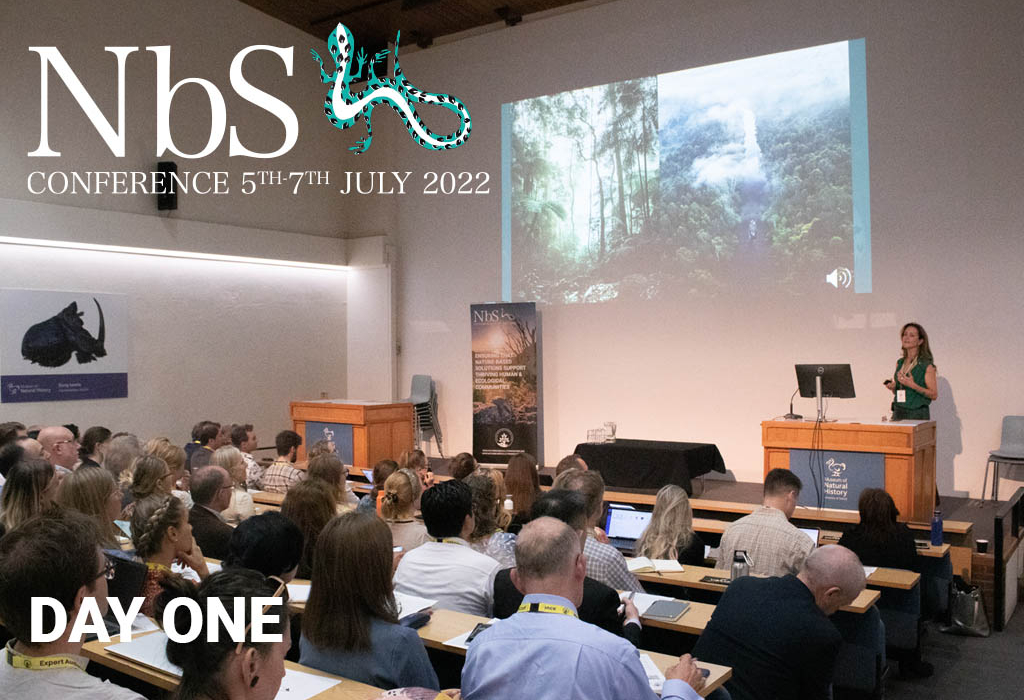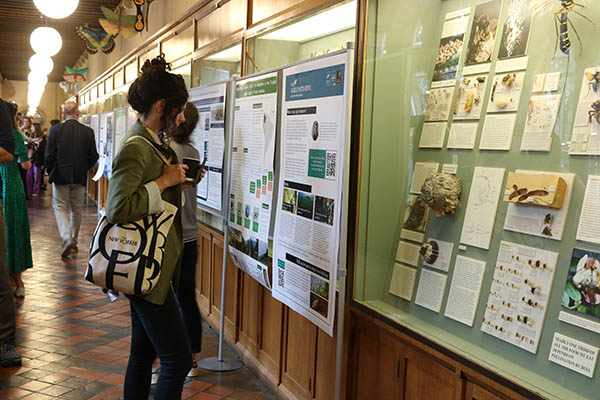NbS Conference 2022 – Day one summary

On Tuesday 5th July 2022, the highly anticipated and long awaited Nature-based Solutions Conference 2022 kicked off with 962 international delegates across science, policy, practice, and business gathering online and at the Oxford Museum of Natural History, to discuss how to ensure that Nature-based Solutions (NbS) support thriving human societies and ecosystems. Several key themes emerged during the first day which are summarised here.
As interest in NbS continues to grow at multiple levels, there is consensus that NbS is ready for and will be useful at the multi-lateral policy level but key tensions still exist, including those around integrating climate and biodiversity finance. The speakers highlighted complementarity between the concepts of NbS, Ecosystem-based adaptation (EbA) and Ecosystem Approaches. A cross-cutting issue between the talks that arose was that there are potential trade-offs in NbS outcomes that need to be identified and considered. Beyond this, creating durable credibility of the NbS concept will require consideration of competing narratives based on power dynamics. There were concerns presented over slippage through ineffective solutions, biased prioritisation of specific solutions by powerful actors and the potential to drive human rights violations. Ways to resolve these challenges were also proposed, including increasing focus on facilitating the formalisation of rights to resources and land tenure. Additionally, NbS have the potential to deliver transformative change when operationalized effectively, diverse values are considered and enabling conditions are created. This will require inclusive governance and the equitable design, implementation and sharing of costs and benefits.

In the final session of the day, we heard that NbS have a real but limited potential to contribute to net-zero by 2050, with this potential varying significantly by country. We heard from the case of Brazil, where deforestation is the largest source of greenhouse gas emissions. Here we heard that implementing the forest code alone would not achieve net-zero by 2050, and that further private sector commitment is needed. More broadly, companies are cautious about setting net-zero targets and many are relying on offsets to achieve these. In addition, insetting has potential to achieve climate mitigation goals, but remains ill-defined; and long-lived storage requires strong governance, long-term finance and engagement with local communities. Finally, we heard that ensuring robust monitoring, reporting and verification are key technical challenges for land-use based carbon-removals.
We’d like to thank all our expert speakers, online and in-person delegates for an enriching and insightful first day of NbS Conference 2022. We look forward to the learnings of Days 2 and 3.




